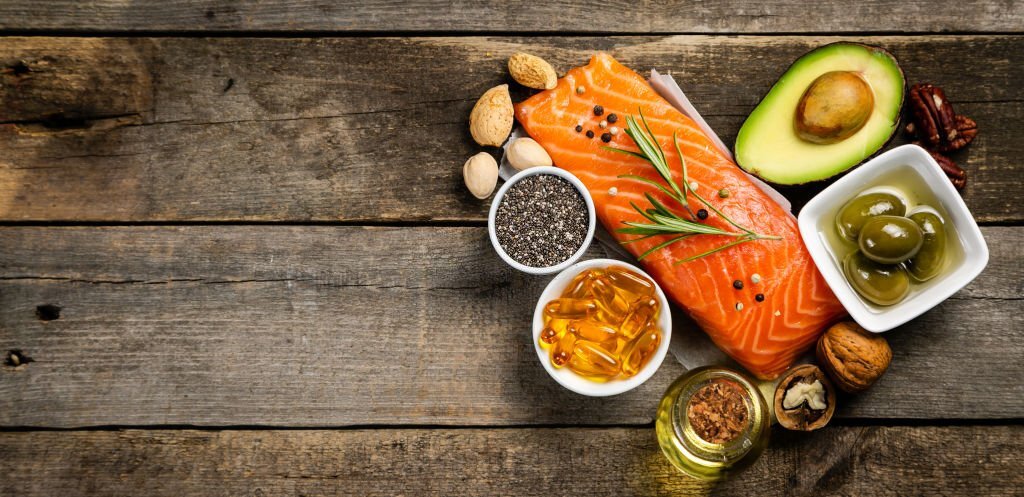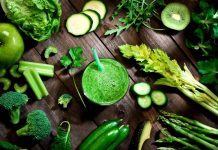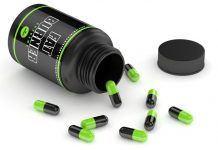
If you’re on the ketogenic diet, you know that fat is an integral part of your meals. In fact, 70% of your daily calories should come from fat. Not all fats are created equal, though.
While there are several types that can fit into a ketogenic diet, some are better than others when it comes to keeping your body in optimal ketosis. That’s why we’ve compiled a list of the best fats for ketogenic dieters to consider adding to their meal plan as often as possible.
Each of these fats has a low-medium carbohydrate count and high-fat content. They also support optimal metabolic function, balance blood sugar levels, and keep inflammation at bay—all good things for those following a keto diet.
10 Good Fats to Include in Your Keto Diet
We’ll share with you 10 keto-friendly fats that you should include in your diet. These fats will help you reach your goal faster and stay full longer.
1. MCT Oil
MCT stands for medium-chain triglycerides. MCTs have been shown to promote rapid weight loss and improve overall health.
They’re created when coconut oil is processed with certain types of enzymes. They’re also easier to digest and metabolize than other types of fat. This makes them an excellent option for keto dieters.
MCT oil is relatively cheap, easy to find, and a quick way to add extra fat to your diet. MCT oil is best used in smoothies or coffee. Adding it to salads or other hot or warm meals could damage the delicate fats, causing them to go rancid much quicker.
2. Grass-Fed Meat
As the name suggests, grass-fed meat comes from animals that are fed grass as opposed to grains.
The difference between the two types of feed is that grass-fed animals eat a more natural diet and produce higher levels of healthy fats.
These fats have been linked to lower rates of heart disease and improved metabolic health. On the ketogenic diet, grass-fed meat is one of the best sources of fat.
It’s also a good source of protein and iron if you buy the right cuts. Just be careful to avoid meats that are marbled with fat, as they could contain more carbohydrates than you expect.
3. Eggs
Eggs are an excellent source of high-quality protein. They’re also rich in several essential vitamins, minerals, and other beneficial nutrients.
The healthiest way to consume eggs on the ketogenic diet is by frying them in organic, pastured butter. This will create a delicious dish that’s rich in healthy fats and protein but low in carbohydrates.
Another option is to use them in baked goods. This can be a great way to get the protein and nutrients from eggs without eating them fried.
Just be sure to use a keto-friendly recipe. Eggs are a good source of choline, an essential micronutrient that helps prevent cognitive decline as we age.
4. Leafy Greens
Leafy greens, like spinach, kale, and lettuce, are excellent sources of vitamins, minerals, and antioxidants. They’re also relatively low in calories and carbs, making them a great addition to any keto meal plan.
Spinach is a great choice for keto dieters. It contains few carbohydrates, is rich in fiber and potassium, and is a good source of vitamins A and C.
Be sure to remove the stems as they can be high in carbs. Kale is another great option as it provides more vitamins and minerals per calorie than spinach.
These veggies are naturally low in fat and have few calories. As a result, they’re not the best choice for adding fat to your diet.
5. Fish and Seafood Oils
Omega-3 fatty acids are essential fats the body cannot produce on its own. Fish and seafood are great sources of omega-3 fatty acids, and many keto dieters choose to supplement their diets with fish oil.
Fish oil pills are the easiest and most effective way to add more of these healthy fats to your diet. Fish and seafood oils are also excellent sources of vitamins A and D. They also contain a type of fat called DHA, which supports brain health and function.
Be sure to choose a high-quality brand to ensure they’re pure and fresh. Some brands contain toxic impurities that could be harmful to your health.
6. Rich, Dark-Colored Veggies
Dark-colored vegetables are an excellent source of vitamins A and C. They’re also rich in fiber and antioxidants, which help reduce inflammation and promote overall health.
Vegetables like broccoli, cauliflower, bell peppers, and brussels sprouts are all great keto-friendly options.
You can also use vegetable oil to add fat to your dishes. This can be an effective way to increase your intake of healthy fats while still following a keto diet.
The only downside to these veggies is that they’re relatively low in protein. As a keto dieter, you may want to pair them with grass-fed meat or another source of protein to ensure you get enough.
7. Nuts and Seeds
Nuts and seeds are a great source of essential fatty acids and vitamins. Some of the best options include almonds, walnuts, Brazil nuts, sunflower seeds, and flaxseeds.
Brazil nuts are a good source of selenium, an essential mineral that protects against several diseases. Likewise, sunflower seeds are rich in vitamin E, which supports the immune system and protects against heart disease.
Nuts and seeds are also relatively low in carbohydrates, making them a good addition to a ketogenic diet. Just be careful not to overdo it as they are high in calories. One handful is usually enough to get the necessary nutrients.
8. Organic, Non-GMO Tofu
Tofu is made from soybeans that have been processed and then pressed into a cake. It’s a great source of protein and rich in minerals like iron and calcium.
Tofu is also relatively low in carbohydrates, making it a good option for keto dieters. It’s best consumed raw or steamed to preserve its nutrients and enzymes.
9. BHB berries
While you can pick and choose your favorite berries for other parts of your meal, berries are a must-have addition to keto smoothie recipes.
Adding strawberries, blueberries, raspberries, and other BHB berries to your keto smoothie will help keep your blood sugar balanced and provide antioxidants and vitamins.
The vitamins in BHB berries are especially important as they help keep your body’s process of metabolic functions up to speed.
10. Flax Seeds
These tiny seeds are rich in fiber, B vitamins, and minerals like manganese, calcium, and magnesium. They are also low in calories, making them a great addition to your keto diet plan.
Flax seeds are best-consumed ground rather than whole, so your body can easily digest them. You can add ground flax seeds to your smoothie, salad, or baked goods.
Conclusion
You might not think of your body as being a source of fats, but it is. Your body needs fat to function correctly, and the best kinds of fat are those that are contained in foods like meat, poultry, fish, eggs, nuts, and seeds.
Now that you know the best types of fats for ketogenic dieting, you should start including them in your diet as often as possible. The more you add to your meals, the more likely you’ll stay on track.
Remember that all fats are not created equal, so think about what your body needs by choosing the right type of fat for you.




